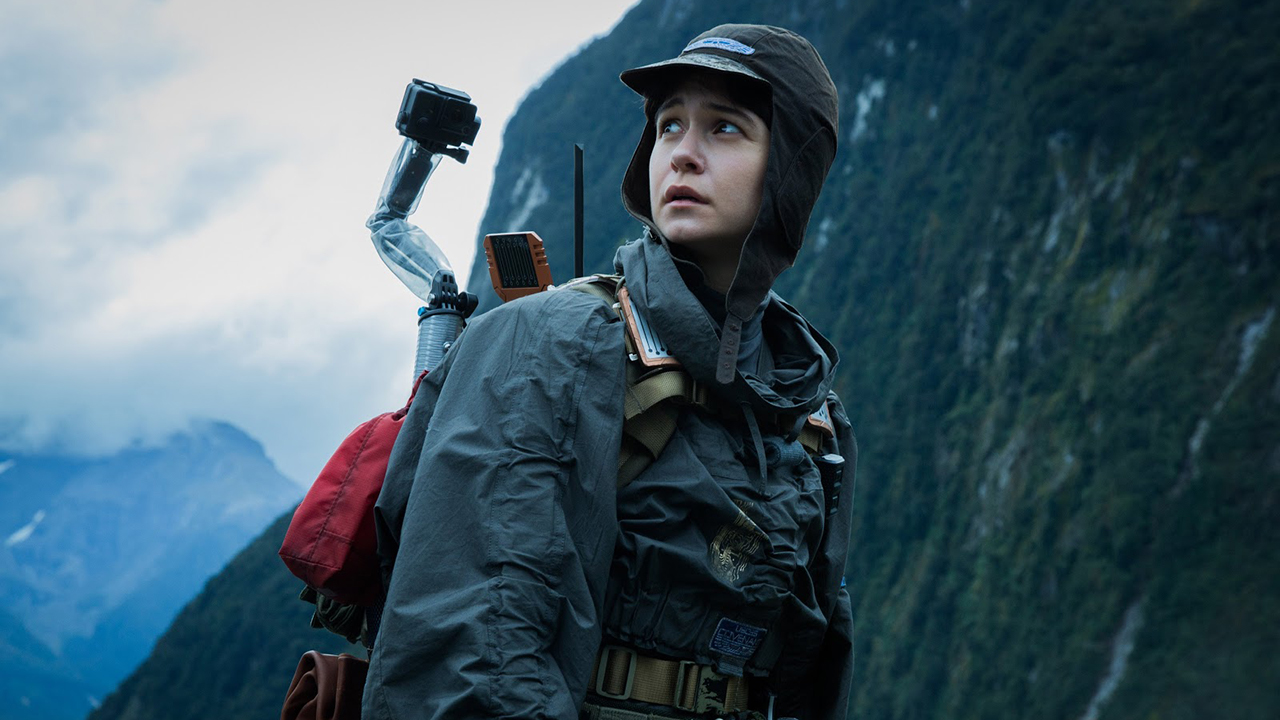5 sci-fi movies that weren’t great but still deserve a sequel

United States
Breaking News:
Washington DC
Tuesday, May 7, 2024


The usual disappointments aside, there are plenty of great sci-fi movies and shows, and our options have only gotten better recently due to film and TV studios scrambling to maintain modern audiences’ interest in traditional audiovisual media.
Everyone knows about the next Star Wars and Star Trek movies, for example, but what about slightly overlooked releases that maybe deserved another shot to either expand or wrap up their intriguing narratives?
We know some, if not all, of our picks are divisive. But that’s the point. This isn’t a list of great movies that were unfairly treated (though we might have a soft spot for some), but rather a handful of entertaining flicks that either deserved to finish their story or had a premise enticing enough to warrant a sequel. Amidst all the huge franchises getting countless new installments automatically, it’s a bummer these stories never got to continue.
As for the best sci-fi movies of all time, we’ve got a list of our own, which you may or may not agree with. Looking for more specific recommendations? We’ve explored the best alien invasion movies, best AI movies, and best time travel movies of all time, too. Art is subjective, but we think all those had pretty interesting things to say and show.
Related: The best sci-fi movies of all time
Warning: Spoilers ahead for some of the movies on the list.

Wobbly in places and veering toward camp, Event Horizon had its (dark) heart in the right place. Conceptually, it’s a fascinating sci-fi horror movie that presented the metal idea of an experimental engine unexpectedly taking a spaceship through literal Hell during one of its first voyages. When a rescue mission comes looking for it, all hell breaks loose (pun intended). It was terrifying and filled with unique cosmic horror vistas.
While there were plans of reworking the concept into an Amazon-backed TV series to be kickstarted by Godzilla x Kong director Adam Wingard a few years ago, as it stands, the IP is adrift in development hell. More than 25 years after the flick’s release, however, its cult status is only growing, so it’s only a matter of time before, one way or another, a new dimension of horror is opened once again.

Before Disney acquired George Lucas’ empire and Star Wars with it, or the entirety of 20th Century Studios’ IP library (Avatar included), the company was looking to kickstart a long-lasting sci-fi saga with Edgar Rice Burroughs’ A Princess of Mars and its sequels. In fact, director Andrew Stanton (of Pixar fame) had firm plans ready for at least three of these movies.
The first of those films, however, crashed and burned at the global box office, making “only” $284 million on a gigantic $263 million production budget, so all the ambitious plans were quickly put on ice. John Carter also struggled to resonate with many critics and sci-fi aficionados, though it’s been reevaluated over the years, mostly because, if anything, it was well-made and adventurous in a way that many modern blockbusters aren’t. With the books widely accepted as sci-fi classics, it’s only a matter of time before someone takes another crack at them, but we still believe this adaptation deserved better.

While the original Independence Day has its detractors to this day, it’s hard to argue against its impact on modern pop culture and alien invasion movies more specifically. Overall, it was a massive success in the 1990s, so of course a follow-up had to happen roughly 20 years later. It wasn’t exactly good, but we had a fun time regardless.
Independence Day: Resurgence was bombastic, but in 2016, audiences were much harder to impress, especially with a CGI-heavy Hollywood extravaganza. The world-building introduced was fascinating, however, so we were kind of sad to see the $389 million box office haul (on a $165 million budget) fail to justify at least another movie, especially after that crazy cliffhanger ending, which teased humanity banding alongside other oppressed species from outer space to take down the evil invaders that spread like locusts across the cosmos.

A harder-to-explain flop was that of Alien: Covenant, the follow-up to Prometheus and second of Ridley Scott’s Alien prequels. What about the third one? It never got a chance to exist in any way. Alien: Romulus, which opens this summer, might give us a bit of an explanation regarding David’s ultimate fate and evil plans, though.
While the Alien movie series had traditionally been an easy money-maker for 20th Century Fox (now Studios), not enough people showed up for Covenant, and many viewers didn’t agree with the direction set by Prometheus and further explored in the second prequel. We can’t blame them, as much of the mystique surrounding the xenos’ origins did indeed vanish. But, at the same time, both movies were the kind of bold science fiction done on huge budgets that isn’t that common anymore, and we’re curious about how the finale would’ve directly tied into Scott’s 1979 masterpiece.

We’ve got some thoughts about how the Terminator franchise should evolve if it’s not going offline anytime soon, but we also had a soft spot for the James Cameron-backed (for real that time) follow-up to Terminator 2. 2019’s Dark Fate wasn’t perfect by any means, but it actually had something to say and wanted to “reset” the series in bold and exciting ways. If one post-Cameron Terminator sequel deserved to grow into a new set of movies, it was that one.
To this day, we don’t know for sure whether some of its ideas will be picked up in the future. Hell, it could even partially inform the Terminator anime coming to Netflix. But we sincerely believe there was more to be told with Linda Hamilton’s Sarah Connor and Natalia Reyes’ Dani Ramos as they fought against a different (but equally ominous) AI threat.